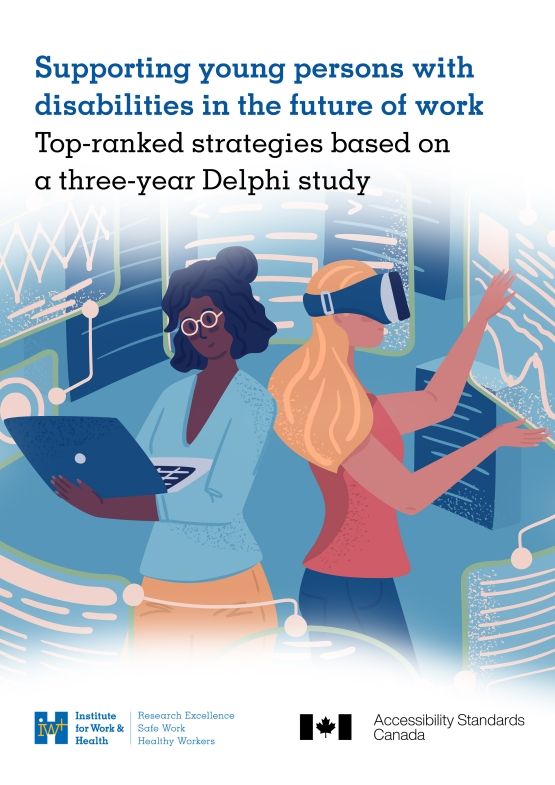Social, technological, economic, environmental, and political trends are changing the nature and availability of work at a rapid rate. These changes will bring challenges and opportunities for young persons living with disabilities who are entering the working world.
In the summer of 2021, researchers at the Institute for Work & Health launched a three-year, multi-phase study to explore the future of work. The study’s aim was to anticipate changes to the working world and examine the implications of those changes for the employment inclusion of young persons living with a disability. The study sought to generate actionable solutions that could be used to ensure greater employment inclusion of persons with disabilities and enhance resilience in the design of policies, programs, and strategies to address changes in the future of work.
In previous phases of the study, participants were asked to identify future challenges that may face persons with disabilities. They were also asked about strategies that might ensure young people with disabilities find and sustain employment in the decades ahead. In the final phase of the study, a consensus-building approach was used to rank the strategies, based on their perceived likelihood of supporting employment inclusion across each of the challenge areas.
This report summarizes the methodology that was used and describes the different strategies that were identified by participants. The practical insights presented in our report can be used by policy-makers, employers, employment service providers, and others. They can help in addressing barriers to employment participation and foster inclusion in the future of work.
